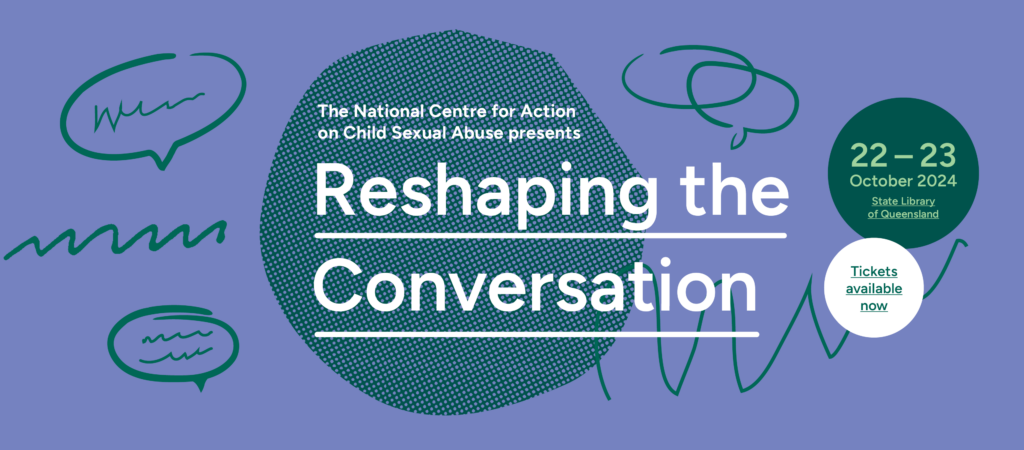-
 Practice Tool
Practice Tool
Practice Prompts for Primary Health Care
Introduction
The National Centre has developed the Practice Prompts for Primary Health Care resource to strengthen the confidence and capabilities of Primary Health Care practitioners, when working with those who experience child sexual abuse and/or sexual violence.
The Prompts for Practice resource has been developed with the expertise and guidance of persons with lived and living experience and key stakeholders from the Primary Health Care sector. It responds to the need expressed by practitioners for practical support and guidance in how they engage and speak with people who have been impacted by violence as part of their practice.
Prompts for Practice provide practical prompts aligned to the four R’s for practice under Recognise, Respond, Refer, and Reflect. They are not designed to be used verbatim, but as a tool to support practitioners and workers shape their own language with examples and prompts of the kinds of things to say, ask and think about when working with those at risk or impacted by violence.
They are guided by what victims and survivors tell us helps to ensure trauma responsive practice that is informed by an awareness of the individual person and their often-complex compounding intersectional experiences. The language used in Prompts for Practice is intentionally informal and practical.
As part of the framing and introduction of the resource, key considerations and context are outlined in accompanying short videos which emphasize the importance of adapting to each situation; being flexible in your approach; using authentic language; taking time; being curious and ensuring safety. These short videos also assist to unpack in a little more detail how to be aware of intersecting experiences such as for people with gender diversity or disability.
Videos
Prompts




Recognise
- I can see you have had a few appointments recently – would it be helpful for us to book a longer appointment for you?
- Is there anything I can do that would help you feel safe during our time together?
- You can tell me as much or as little as you would like. What’s important for me to know is how it is impacting on you or how I can support you.
- Is there something you would like to talk about it?
- Is there anything else that might be related to why you’re here today?
- I want you to know there is nothing so bad we can’t talk about it.
- Is there anything else you want to talk about, but might not be sure how to say it?
- Has someone touched you in a way you didn’t want, or hurt you?
- Has someone hurt you, made you feel uncomfortable, or scared?
- I’m worried something might have happened to you – would you like to speak to me, or another person about it? (consider cultural protocols such as gender/age of worker)
- Has someone hurt you in a sexual way?
- Did you experience any trauma in your childhood, or as an adult?
- When you were younger, did you experience things that made you feel unsafe or frightened?
- Have you had an injury, or has something happened in that area that could be related to why you’re here?
- How does your disability impact you? Is there anything I need to know to support you better?
- Are you in a relationship? What is their name?
- Is there a community group you fit with or belong to?
- Has someone made you feel shame or bad?
- Is there anything you want to tell me or yarn about?
Respond
- Thank you for sharing that with me. I want you to know I believe you.
- What happened to you isn’t your fault.
- You have done so much to try and keep yourself safe.
- I can’t imagine how hard it must have been for you to tell me that.
- Does anyone else know?
- How have you been managing the impacts of what happened?
- What do you need from me at the moment?
- I’ll always do my best to listen and help you
- It would have taken a lot of courage to tell me what happened.
- We might need to tell other people – how do you feel about that?
- One of the things I have to do is make a report. How do you feel about that?
- You can tell me as much or as little as you would like. What’s important for me to know is how it is impacting on you or how I can support you.
- What would being safe in this space look like to you?
- Would you like to speak to me, or another person about it? (consider cultural protocols such as gender/age of worker)
- Have you thought about what you would like to happen next? Would you like to talk about it?
- I can hear there is a lot for you to manage at the moment. Is there anything we can do together?
- What do you feel you might need right now, to be able to leave here feeling safer and more supported?
- When would you like to see me again?
- It’s really important we take the time to talk through this – I know we are out of time now, could we spend our next appointment talking about it?
- Would you like to talk about it again another time?
- How would you like me to contact you if I don’t hear from you?
- Have you thought about receiving ongoing support?
- Do you have supportive friends and family who know what happened to you?
Refer
- Have you worked with a service before?
- What would help you be open to receiving support?
- Was there anything that helped the last time you worked with a service?
- Was there anything that wasn’t so helpful?
- Do you have a family member you feel comfortable yarning with?
- Would you like to have a yarn with someone about what happened to you?
- Would you like me to attend the appointment with you?
- Is there a service you would go to locally? Or would you prefer to travel?
- Would you like me to pick you up and take you there?
- Would you prefer an in-person appointment, online, or on the phone?
- Do you have a private, safe space you can use for the online appointment?
- Is there anything I might need to know about you, that would help me to refer you to the right service?
- Would you like us to call them together?
- Would you like to take some time to think about next steps?
- Is there a community group you align with, belong to, or feel comfortable with?
- Is there a service you would not feel comfortable with, or does not align with or sit well with your community or values
- Are there any supports or services that would not be right for you? Do you have any hesitations about gettng extra support?
Reflect
- How am I feeling? What do I need to do right now to be able to go into to my next appointment?
- Did anything happen that surprised me?
- Did I acknowledge their choices, or lack of choices?
- How did I empower their choices?
- What language did I use? Could it have sounded like I was blaming and/or placing responsibility on the victim and survivor, even if that wasn’t what I intended?
- Could I have talked about it in a different way? Did I react in a way that may have been unhelpful? Is there something I need to do next time to repair the relationship?
- What could I have done differently?
- What would I ask next time, that might support someone better?
- Who can I talk to that will help me learn more about supporttng victims and survivors?
- Did I see their strength and courage? Did I tell them?
- Did the language I use enhance safety?
- How would I know I made an impact?
- How did I ask for feedback?
- What are my values, beliefs, biases, and stereotypes about sexual violence and child sexual abuse?
- What do I need to know about myself?
- Did I listen to try and fix something, or did I listen to hear them?
- Did I speak more than they did?
- How did I show empathy and compassion?
- Did I empathise with their journey?
- Do I need to talk to someone?
- What did I learn?
- Did I use the opportunity to promote use of correct genital names?
- Did I offer a support person? Or ask whether I could be that person? (*if appropriate)








